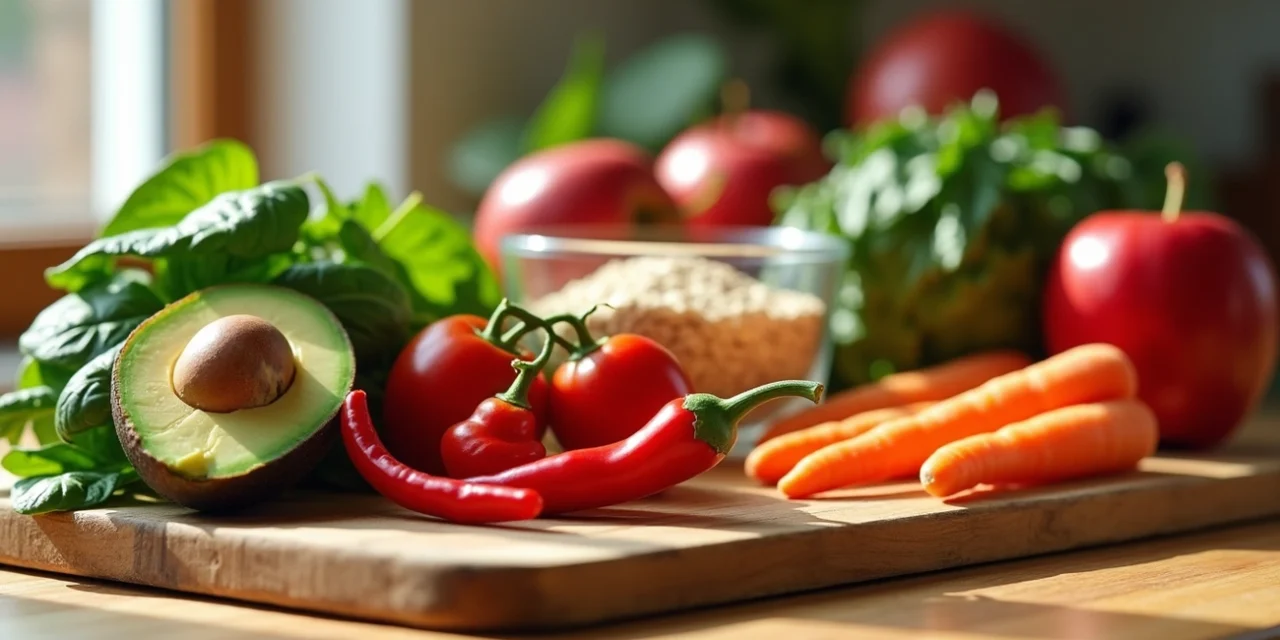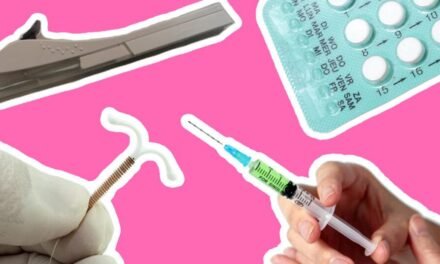Your kitchen might already have foods that boost erections. Research shows that a balanced diet can lower your risk of erectile dysfunction, though many men reach for medications first. Men who eat several servings of specific fruits daily reduce their erectile dysfunction risk by 14%.
Best penis enlargement foods that help with erectile dysfunction boost blood flow and support hormone production. Men who ate more flavonoid-rich fruits had a 19% lower risk of erectile problems. The natural blood flow boosters include foods rich in zinc, vitamin E, and nutrients that enhance testosterone levels and sperm quality. A 2014 study with more than 3,000 men showed that high caffeine consumers reported fewer erectile difficulties compared to those who drank less.
This piece breaks down science-backed foods that naturally support your erectile health. You’ll learn how these foods work and practical ways to add them to your daily meals for the best results.
How Diet Affects Erections
The link between your diet and erectile function explains why certain foods can affect your performance in the bedroom. Several key physiological mechanisms work together to create the foundation for healthy erections.
The role of blood flow and nitric oxide
Blood flow starts every successful erection, which depends on a vital molecule called nitric oxide (NO). This gas acts as the main chemical messenger that triggers the erectile response. Sexual stimulation causes nerve and endothelial cells in your penis to release NO, which then activates an enzyme called soluble guanylyl cyclase. This activation boosts levels of cyclic guanosine monophosphate (cGMP), a compound that helps your penis’s smooth muscles relax.
The process happens in stages. NO releases from nerve fibers that supply the corpora cavernosa (the erectile tissue). Blood flow then creates shear forces that trigger more NO release from the endothelium. This chain reaction lowers calcium levels in smooth muscle cells, which makes them relax and lets blood flow into the penis. The entire mechanism fails without enough NO—this explains why reduced NO bioactivity leads to erectile dysfunction.
Why testosterone matters
NO manages the mechanics of erection while testosterone directs everything behind the scenes. Your principal male hormone affects both your sex drive and your ability to achieve an erection. Testosterone helps produce proteins and activates anabolic mechanisms throughout your body, which builds muscle strength and overall vitality.
Your body makes testosterone through a complex sequence. The hypothalamus releases gonadotropin-releasing hormone that triggers luteinizing hormone from your pituitary gland. This hormone then tells the Leydig cells in your testes to produce testosterone. Research shows that testosterone in part regulates NO-mediated cavernosal relaxation—studies found that castration in rats reduced erectile response by 50%. The exact role of testosterone in human erections remains unclear, with low testosterone showing up in only about 5% of erectile dysfunction cases.
How food influences hormone levels
Your plate becomes especially important here. Studies confirm that what you eat substantially affects erectile function. Men who follow the Mediterranean diet—rich in fruits, vegetables, whole grains, nuts, and fish—show lower rates of erectile dysfunction consistently. A complete study tracking 21,469 men revealed that those with the highest Mediterranean diet scores had the lowest risk of ED, especially men under 60 years old.
Research has identified these specific connections between diet and erectile health:
- Obese and overweight men who drop pounds through low-fat, low-calorie diets show better erectile function and testosterone levels
- More vegetables, fruits, legumes, and fish relate to lower risk of incident erectile dysfunction
- A Western diet full of processed foods links to lower semen quality
- Men who added 60 grams (about ½ cup) of nuts to their daily diet improved their sexual function over 14 weeks
Diets high in saturated fats can harm erectile function by raising cholesterol levels, which creates fatty deposits in blood vessels and restricts blood flow. Poor eating habits that lead to obesity also relate to decreased testosterone—research shows that testosterone levels drop as BMI increases.
8 Natural Penis Enlargement Foods That Help Erections
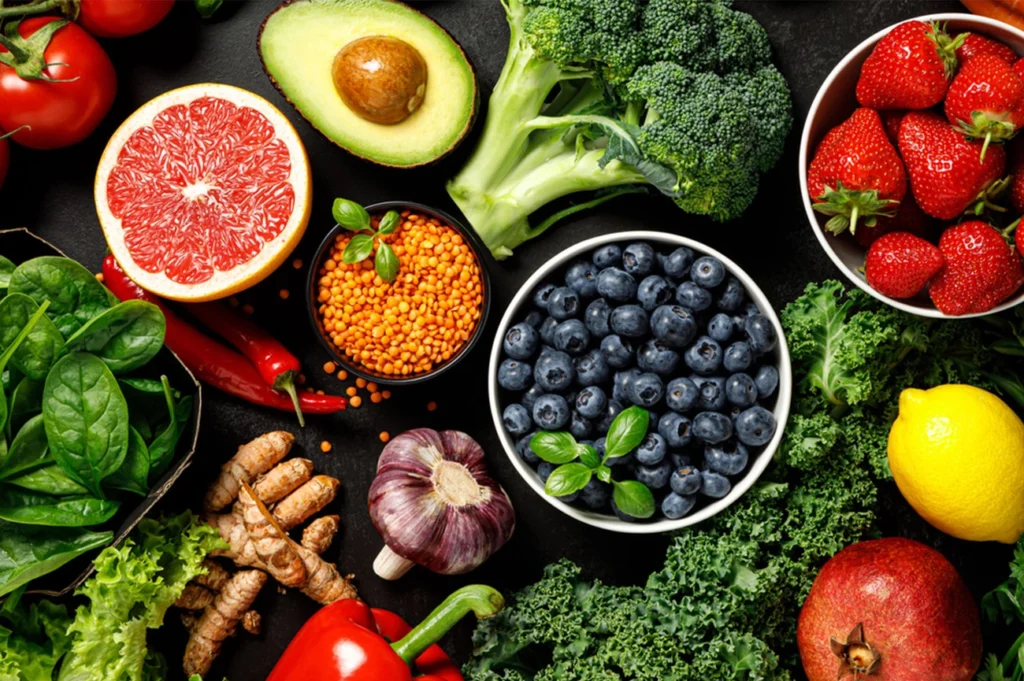
Want to boost your bedroom performance naturally? These eight proven foods can help improve blood flow, support hormone levels, and boost sexual function. You just need to add them to your daily diet.
Spinach – Boosts folate and circulation
This leafy green superfood works wonders for erectile health. Spinach has high levels of folate, a nutrient that plays a key role in male sexual function. Research links low blood folic acid levels to erectile dysfunction. The magnesium in spinach helps blood flow and reduces ED risk. A serving of spinach (about 2/3 cup) provides 79 mg of magnesium (19% of daily value) and 194 micrograms of folate (49% of daily value). These numbers make it a perfect food to support erectile health.
Oats – Rich in L-arginine for blood flow
A bowl of morning oatmeal could be one of the easiest ways to support erectile function. Oats contain L-arginine, an amino acid your body uses to create nitric oxide—a molecule that helps blood vessels relax and improves flow. Nitric oxide acts as a powerful neurotransmitter that lets blood vessels relax and boosts circulation. Oats’ beta-glucans naturally clean arteries, which leads to better blood flow—something you need for healthy erections.
Apples – Flavonoids for vascular health
The old saying about an apple a day might apply to erectile function too. Apples are among the top five fruits rich in flavonoids—specifically anthocyanins, flavones, and flavanones. A 2016 review found that men who keep taking these flavonoid-rich fruits had a 19% lower risk of erectile dysfunction. Men who ate at least three portions of flavonoid-rich foods weekly were 10% less likely to experience ED. Red apples pack more of these helpful compounds than yellow or green ones.
Avocados – Supports testosterone and libido
The Aztecs knew something when they named avocados after their word for “testicles.” These creamy fruits contain boron, a mineral that affects testosterone metabolism and helps protect against testosterone breakdown. Research shows boron supplements can raise testosterone levels by 32% in just one week. Avocados also pack vitamin E and zinc—key nutrients for sperm quality and testosterone production. Their healthy fats help produce hormones, while vitamin B6 helps regulate male hormones.
Carrots – Improves sperm quality and motility
The simple carrot packs quite a punch for male sexual health. Studies show eating carrots made sperm perform better by 6.5% to 8%. These orange vegetables are loaded with beta-carotene, which helps improve sperm motility. Men who ate the most beta-carotene showed 6.5 percentage units better progressive sperm motility than those who ate the least. Research also shows that carrot extract can substantially increase luteinizing hormone and testosterone levels.
Tomatoes – Lycopene for prostate and ED
Tomatoes’ lycopene helps both prostate health and erectile function. Men who ate the most lycopene had an 11% lower risk of prostate cancer compared to those who ate the least. Cooking tomatoes in oil helps your body absorb more lycopene than eating them raw. Health experts suggest eating cooked tomato products twice weekly. Research found men who ate canned and cooked tomatoes 5-6 times weekly had a 28% lower risk of prostate cancer.
Chili Peppers – Capsaicin and testosterone link
The sort of thing I love about spicy food is its connection to testosterone. Studies show men who like spicy food have higher testosterone levels. Research found an interesting link between men’s natural salivary testosterone levels and how much hot sauce they chose to eat with meals. Capsaicin, which makes peppers hot, seems to boost circulation and might help produce testosterone. It works both ways—men with more testosterone prefer spicier foods, and eating spicy foods might help maintain testosterone levels.
Caffeine – Enhances energy and blood flow
Your coffee does more than wake you up. A study of 3,700 men showed those who drank 85-170 mg of caffeine daily (about 1-2 cups of coffee) were 42% less likely to report erectile dysfunction than non-coffee drinkers. Men drinking 171-303 mg daily saw a 39% reduction. This worked best for overweight/obese and hypertensive men without diabetes. Caffeine helps by relaxing penile arteries and smooth muscle, which lets more blood flow.
Herbs and Supplements That May Help
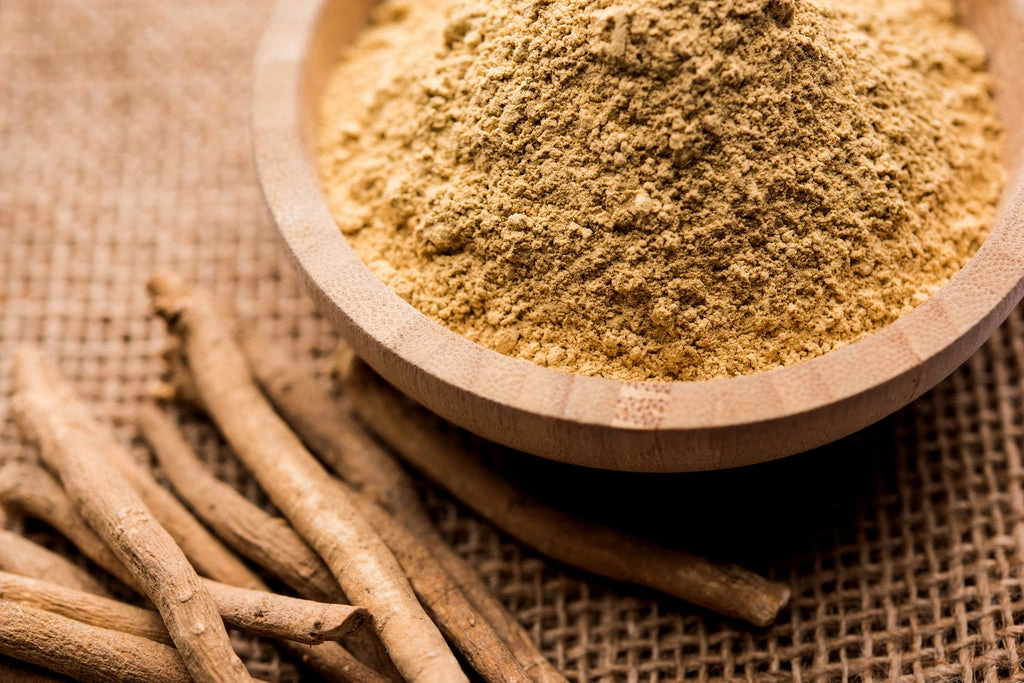
Some herbs can help support erectile function alongside dietary changes. These traditional remedies have got scientific attention, though results differ in quality and strength.
Panax Ginseng
Panax ginseng (Korean red ginseng), often called “herbal Viagra,” shows promising effects on erectile function. The herb boosts nitric oxide levels to improve blood vessel dilation. Studies reveal modest improvements in erectile function. It helps maintain erections and improves rigidity. Users should take 0.5-3 grams daily for up to 6 months. Some people experience insomnia, headaches, and digestive problems.
Ashwagandha
This Ayurvedic herb helps erectile health by increasing testosterone levels. Research shows ashwagandha root extract boosted serum testosterone levels by a lot. It improved sexual function in several areas including arousal, behavior, and desire. Men who took ashwagandha for 8 weeks saw better orgasmic function and sexual desire. The herb also reduces stress and anxiety—common factors in erectile problems.
Horny Goat Weed
Icariin, the active ingredient in horny goat weed, works like ED medications but isn’t as strong. It blocks phosphodiesterase type 5 (PDE5) to increase blood flow to the penis. Lab studies show it helps produce more nitric oxide, which could lead to better erections. While animal studies look promising, we need more human research. Users might experience dizziness, dry mouth, and nausea.
Yohimbe – Use with caution
Yohimbe bark has traditional ED uses, but safety concerns are serious. The supplement blocks specific receptors that limit blood flow and sexual arousal. While it might help with erections, yohimbe’s risks are substantial. Users can experience dangerous side effects like rapid heartbeat, high blood pressure, anxiety, and seizures. Product quality varies widely, and medical experts recommend avoiding this supplement.
You should talk to your doctor before starting any supplement, especially if you take medications or have health conditions.
Foods to Avoid for Better Sexual Health
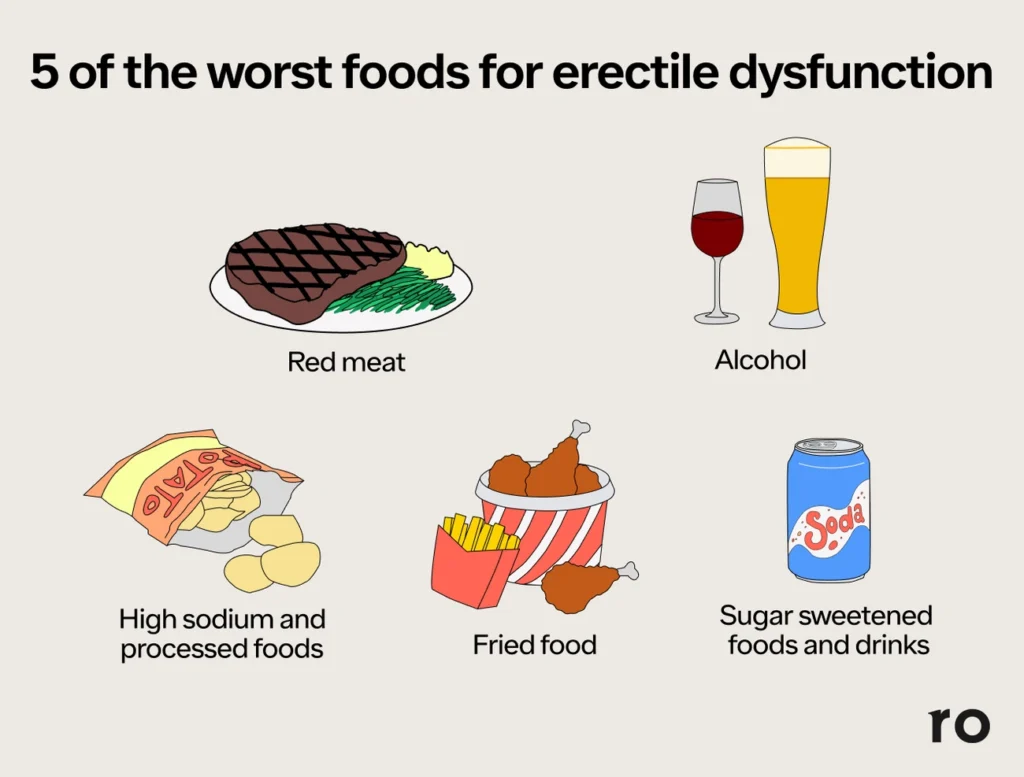
Your sexual health depends as much on avoiding harmful foods as it does on eating the right ones. Smart changes to your diet should focus on both adding good foods and removing the ones that hurt your performance.
Processed meats and fried foods
The foods you skip matter just as much as the ones you eat. Processed meats and fried foods pack high amounts of saturated fats. These fats build up plaque in your arteries and limit blood flow to the penis. Red meat raises your ED risk because it leads to atherosclerosis. This makes your heart work harder to pump blood through your body. Blood vessels gradually narrow when you keep eating fried foods. This can cause ED problems even in healthy men.
Sugary drinks and refined carbs
Soft drinks and sugary beverages quietly damage your erectile health. One daily soft drink increases your metabolic syndrome risk by 48% after 20 years. White bread and cookies spike your blood sugar quickly. This triggers insulin surges that harm your blood vessels as time passes. These refined carbs lack zinc, magnesium, copper, and selenium – nutrients that help prevent ED.
Excessive alcohol and trans fats
Alcohol damages nerve signals and throws off hormone production when you drink too much. Research shows 62% of alcoholic men face sexual problems. Trans fats in margarine and store-bought baked goods cause double trouble. They boost bad cholesterol while reducing the good kind. Men who eat more trans fats have 35-49% lower sperm counts compared to those who eat less.
When to See a Doctor

Good dietary habits alone might not solve erectile problems that persist. These issues need medical attention because they often point to deeper health problems.
Signs of underlying health issues
Erectile dysfunction often warns us early about serious health conditions like heart disease, diabetes, or hormonal imbalances. Seek medical help immediately when erectile difficulties occur more than 25% of the time. The red flags you should watch include: no morning erections, low sex drive, pain during intercourse, or unexplained tiredness with ED. Your penis’s blood vessels are smaller than your heart’s vessels. This means ED could predict heart attacks or strokes years before they happen.
How a urologist can help
A urologist’s expertise lies in treating your reproductive and urinary system problems. They review your medical history, examine you physically, and might order blood tests to check for conditions like diabetes or heart disease during your visit. Men sometimes feel awkward discussing erectile issues, but doctors handle these conversations professionally. Quick diagnosis leads to timely treatment that helps your sexual function and lowers the risk of serious health issues.
Combining diet with medical treatment
Medical treatments work better when combined with foods that help erectile function. The old saying rings true: “what’s good for your heart health is good for your sex health”. Your urologist helps find the root cause while supporting better food choices to improve erectile function. Doctors recommend plant-rich diets because they boost metabolic health, which directly helps erectile performance.
Conclusion
Natural foods offer a promising way to address erectile dysfunction for men who want alternatives to medication. The foods that support healthy blood flow and hormone balance can substantially affect your sexual health. Research shows a clear link between diet and erectile function. Foods containing nitric oxide-boosting compounds, antioxidants, and essential minerals have shown great potential.
Your regular diet should include spinach, oats, apples, avocados, carrots, tomatoes, chili peppers, and caffeine to boost both your overall health and erectile function. On top of that, it might help to add herbs like Panax ginseng and ashwagandha, but check with your doctor before taking any supplements.
All the same, dietary changes work best when combined with other healthy lifestyle habits. Of course, removing processed meats, sugary drinks, excessive alcohol, and trans fats from your diet is just as important as adding good foods. These harmful items limit blood flow and harm blood vessels over time, without doubt leading to erectile problems.
Diet plays a vital role, but ongoing erectile problems need medical attention. Erectile dysfunction often points to mechanisms like heart disease or diabetes. A urologist can help you tackle both symptoms and potential causes while creating a detailed treatment plan.
These changes take time to show results. But consistent dietary changes along with proper medical care can lead to substantial improvements in your erectile health. What’s good for your overall health is good for your sexual function too—making these natural approaches worth learning about for better health in and out of the bedroom.
FAQs
Q1. What natural foods can help improve erectile function?
Several foods can support erectile health, including spinach, oats, apples, avocados, carrots, tomatoes, chili peppers, and caffeine-containing beverages. These foods contain nutrients that boost blood flow, support hormone levels, and enhance overall sexual function.
Q2. How does diet affect erections?
Diet plays a crucial role in erectile function by influencing blood flow, hormone levels, and overall vascular health. A balanced diet rich in fruits, vegetables, whole grains, and lean proteins can improve circulation, boost nitric oxide production, and support testosterone levels, all of which are essential for healthy erections.
Q3. Are there any herbs or supplements that can help with erectile dysfunction?
Some herbs and supplements, such as Panax ginseng, ashwagandha, and horny goat weed, have shown potential benefits for erectile function. However, it’s important to consult with a healthcare professional before taking any supplements, as they may have side effects or interact with medications.
Q4. What foods should be avoided for better sexual health?
Foods that can negatively impact erectile function include processed meats, fried foods, sugary drinks, refined carbohydrates, and foods high in trans fats. Excessive alcohol consumption can also contribute to erectile difficulties.
Q5. When should someone see a doctor about erectile dysfunction?
It’s advisable to consult a doctor if you experience persistent erectile difficulties, especially if they occur more than 25% of the time. Erectile dysfunction can be an early warning sign of underlying health issues such as heart disease or diabetes, so seeking medical attention is important for overall health.

